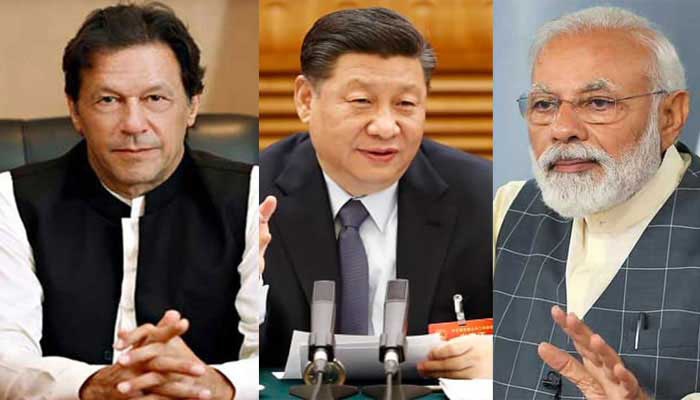‘China not to pick sides in Pakistan-India dispute’
March 12, 2019

ISLAMABAD: According to the Chinese media, the Indian high commissioner came back to Pakistan due to the efforts of China and other countries for de-escalation and a massive military conflict was averted.
A state media opinion piece says China will not pick sides in the Pakistan-India dispute as its primary aim is to develop the “poor and backward” Kashmir, adding that Beijing is willing to be the mediator to defuse tensions between Islamabad and New Delhi.
The editorial dismissed India’s concerns about China’s consistent support to Jaish-e-Mohammad (JeM) chief Masood Azhar, by not allowing him to be listed as a terrorist in the UN Security Council (UNSC).
“The disputed Kashmir region is not destined to be poor and backward forever. This is China’s goal and should also be the goal of both India and Pakistan. If the two countries can meet each other halfway, it would help them to build mutual trust, lay the foundation for peaceful negotiations and especially strengthen their cooperation on anti-terrorism together with China,” nationalistic tabloid Global Times said in an opinion piece.
“China will not pick sides in India-Pakistan disputes. Aiming at easing the two countries’ conflicts and improving the anti-terrorist situation, China will play the role of a mediator and facilitator amid the ongoing tensions,” the opinion piece said.
The editorial said it was “irresponsible” to blame China for protecting alleged terrorists. “However, some Indians doubt China’s efforts. Some Indian experts blamed China for ‘continued protection’ of terrorists who were allegedly based in Pakistan and launched the Pulwama terror attack in February. And many Indian analysts regard China’s Belt and Road Initiative (BRI) as a geopolitical threat,” it said.
“Such irresponsible statements are not supported by facts. Foreign ministers of China, Russia, and India held the 16th trilateral meeting on February 27. During the meeting, they vowed to eradicate breeding grounds of terrorism and extremism. In fact, China, Pakistan, and India share common interests in combating terrorism. It is time for India to stop the groundless accusations,” it said.
The editorial, however, said that India should overcome its prejudices against the BRI as it would boost cooperation and help bring stability to the region. “And India should also understand this: Although China supported Pakistan in alleviating poverty and wiping out terrorism, Beijing is not an enemy of New Delhi. Just the opposite: China proposed and launched the BRI, which not only meets India’s needs for infrastructure construction but also helps ease India-Pakistan tensions,” it said.
“We believe that political consultation must be the only channel to resolve the disputes. This is China’s consistent policy, and nothing will change China’s firm stand in promoting peaceful negotiations between India and Pakistan,” it said.
Meanwhile, China said it was only through discussions that a “responsible solution” could come out on the issue of listing Masood Azhar as a terrorist at the UNSC. The Chinese foreign ministry’s comment comes in the backdrop of the US, the UK and France moving a fresh proposal at the UNSC to list Masood Azhar as a global terrorist in the aftermath of the JeM claiming responsibility for the suicide attack in Kashmir’s Pulwama on February 14.
According to reports, the resolution was expected to be taken up by the 1267 committee of the UNSC on March 13. China has thrice blocked the move by India and other UN members.
“First I would like to say that the UNSC as a main body of the UN has strict standards and rules of procedures... China’s position on the designation of a terrorist by the 1267 Sanctions Committee is consistent and clear,” foreign ministry Lu Kang said on Monday when asked about the upcoming proposal.
“China (has) adopted a responsible attitude, follows the rules of the procedure of the committee and participated in the discussions in a responsible manner. Only through discussions can we come up with a responsible solution,” Lu said.
To a second question whether the issue of Masood Azhar’s ban figured in China’s talks with Pakistan, Lu said: “Recently, India and Pakistan has experienced a lot. We think those indents are not in the interest of peace and stability in the region. We have engaged in mediation efforts with both sides and held talks to promote the easing of tensions. We made enormous efforts. While exchanging ideas security is an important topic and I can say that our talks were wide-ranging and quite deep,” he said.
Originally published in TheNews





